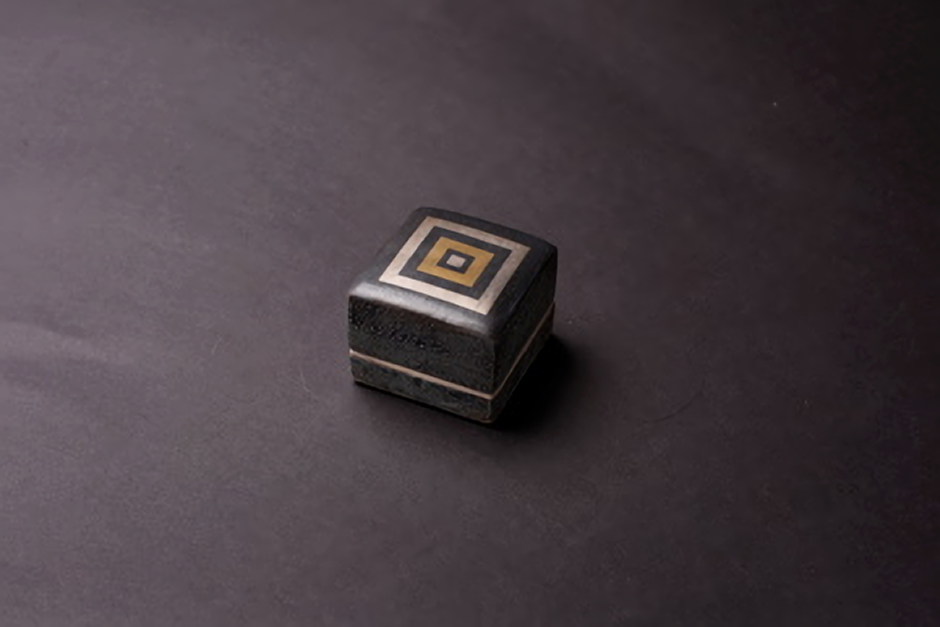
陶筥 W4.6cm D4.5cm H3.5cm


陶筥 W4.6cm D4.5cm H3.5cm
Kondo Takahiro
In 1958, Takahiro Kondo was born in the family, whose business was porcelain glazing of Kyo-Yaki. His grandfather is a disciple of the master, Kenkichi Tomimoto, and living national treasure, Yuzou Kondo who is the best in porcelain glazing. His father, Hiroshi, who is the second son of Yuzou, also had a related job but Kondo family does not follow hereditary.Thus, Takahiro was not forced to succeed their family business and he was grown up freely. He dedicated to table tennis and he became the Japan Champion when he was in high school. After that, he continued to succeed in international tournaments as Japanese national team player.
In 1982, after he graduated from Hosei University, he entered Kyowa fermentation manufacturing company to play table tennis. However, when he was 25, his ant,Yutaka, committed suicide troubled in working as a ceramic artist. Yutaka had avant-garde style, which was different from Yuzou and Hiroshi, as a professor and a ceramic artist and he had already got an international reputation. Takahiro was shocked because his family business could be worth doing at the risk of their life and he decided to follow the same way. Returning to Kyoto, he learned basic skills, kiln and soil at the Kyoto Prefectural Ceramics Technical Institute and the Kyoto Municipal Institute of Industrial Research. At the same time, studying under his father about glazing, he gradually started to display his own works.
Later, standing out in the art world, in 1990, he held a personal exhibition for the first time in San Paulo, Brazil. Then he was asked by many other local artists that why he had made only traditional jars colored in blue. Moreover, during his stay, at the contemporary art exhibition, the meeting with freestyle works expressing artist-self as they want, let him think seriously about the originality. He became to face the real challenge of modernism focused on concept and originality.
Repeating experiments and try and error, he kept asking himself how his works should be in the 21st century. Therefore he managed to create “Jiku-Tsubo”(Space-time jar) which expressed his new concept,” integrating of dichotomy”. Leaving wheel, the work aimed to combine dichotomic images between old beauty and ugliness and modern ones of Kyoto was released in 1994, the memorial 1200 years of the establishment of City of Kyoto, it has been known as the outstanding work of Takahiro. Furthermore, he obtained the original skill “Gintekisai” decorating ceramics with gold, silver and platinum in order to express dichotomy of “the water emerging from fire” and succeeded to express not only design and coloring but texture. The modern pottery making improved the awareness in overseas by Takahiro’s works.
In 2002, he went to Edinburgh College of Art to seek other expression ways except using soil and he learned about many materials. In Edinburgh, he displayed”Reido”(0 degrees).Integrating glass and ceramics, he expressed the circulation of life by the dichotomy between water and soil. While understanding his origin, he would see his world if he keeps challenging things that nobody tries while he understands his origin. Repeating that, Takahiro built up his absolute creativity beyond the world of ceramics.